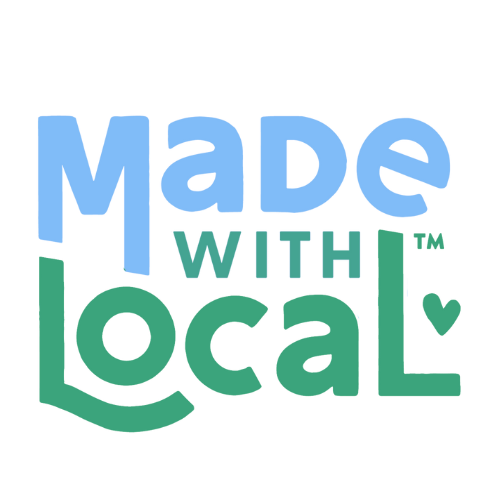

Made with Local Snack Foods Inc

Nova Scotia, Canada
April 2019
Food products
Wholesale/Retail
Canada
Made with Local’s a Nova Scotia-based brand on a mission to create foods that are as nourishing & delicious as they are good for people & the planet. They’re trailblazers in the local food movement in CPG and have, for 10 years, been creating snacking & breakfast innovations that connect the consumer to a radically transparent look at where their food comes from. They’re best known for their soft-baked, gluten free Real Food Bars made with 100% whole-food ingredients. They’re a Certified B Corp, and have shown that we can, and should be, prioritizing our health & wellbeing by eating foods grown and produced ethically, sustainably. Made with Local’s foods taste amazing BECAUSE of their obsession with sourcing the best possible ingredients, not in spite of that. And it’s their transparency & authenticity that has allowed them to build a deeply trusted brand that’s the first-choice snack for thousands of Canadian families, every single day.
Overall B Impact Score
Governance 15.2
Governance evaluates a company's overall mission, engagement around its social/environmental impact, ethics, and transparency. This section also evaluates the ability of a company to protect their mission and formally consider stakeholders in decision making through their corporate structure (e.g. benefit corporation) or corporate governing documents.
What is this? A company with an Impact Business Model is intentionally designed to create a specific positive outcome for one of its stakeholders - such as workers, community, environment, or customers.
Workers 32.9
Workers evaluates a company’s contributions to its employees’ financial security, health & safety, wellness, career development, and engagement & satisfaction. In addition, this section recognizes business models designed to benefit workers, such as companies that are at least 40% owned by non-executive employees and those that have workforce development programs to support individuals with barriers to employment.
Community 30.1
Community evaluates a company’s engagement with and impact on the communities in which it operates, hires from, and sources from. Topics include diversity, equity & inclusion, economic impact, civic engagement, charitable giving, and supply chain management. In addition, this section recognizes business models that are designed to address specific community-oriented problems, such as poverty alleviation through fair trade sourcing or distribution via microenterprises, producer cooperative models, locally focused economic development, and formal charitable giving commitments.
Environment 20.2
Environment evaluates a company’s overall environmental management practices as well as its impact on the air, climate, water, land, and biodiversity. This includes the direct impact of a company’s operations and, when applicable its supply chain and distribution channels. This section also recognizes companies with environmentally innovative production processes and those that sell products or services that have a positive environmental impact. Some examples might include products and services that create renewable energy, reduce consumption or waste, conserve land or wildlife, provide less toxic alternatives to the market, or educate people about environmental problems.
Customers 4.7
Customers evaluates a company’s stewardship of its customers through the quality of its products and services, ethical marketing, data privacy and security, and feedback channels. In addition, this section recognizes products or services that are designed to address a particular social problem for or through its customers, such as health or educational products, arts & media products, serving underserved customers/clients, and services that improve the social impact of other businesses or organizations.